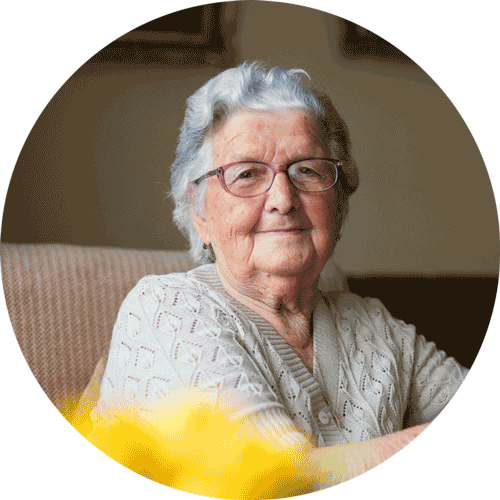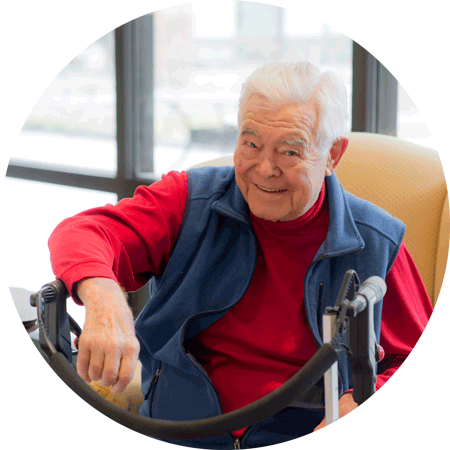Belmont House Pandemic Plan
Pandemic Overview
Why are we worried?
- Belmont House is home to a Vulnerable Population.
- Residents/tenants are at high risk for developing complications.
- The virus can spread quickly once introduced into the home.
Flu Symptoms
- All types of flu have similar symptoms
- Fever of 37.8 °C
- Cough/sore throat
- Runny/stuffy nose
- Headache/body aches
- Chills
- Fatigue
- Nausea, vomiting and/or diarrhea
- Your health care provider can determine if you have the flu or not
Stages of Pandemic Emergency
- Stage 1 includes no pandemic activity in the country, province or community.
- Stage 2 includes pandemic activity in the community.
- Stage 3 includes pandemic activity in the home.
When Pandemic Activity is Confirmed
- The Ministry of Health will confirm the pandemic and Belmont House will initiate its plan.
Dealing with cases in Belmont House
- Initial Outbreak Management team meeting will include, but not limited to:
- All Department Managers
- CEO
- Medical Director
- Toronto Public Health representative
- The Infection Control Practitioner
Initial Control Measures
- Isolation of affected residents (with the exception of 2W).
- Routine Practices.
- Signage.
- Screening of persons entering the home.
Routine Practices
Used to minimize the risk of spreading infection.
- Includes:
- hand hygiene,
- use of personal protective equipment
- cleaning.
Restrictions
- All entrances/exits except the front main entrance will be locked.
- Stay home if ill.
Essential Services
- Contingency plans are in place to help deal with the following essential services:
- Heating and cooling
- Water Shortage
- Food service
- Prescription medications
- Lab services
- Oxygen services
- Supplies – cleaning and medical
- Garbage disposal
- Elevator service
- Refer to pandemic protocol policy for further details
Admissions/re-admissions/transfers of residents/tenants
- Admissions, re-admissions and discharges will be based on the level of the pandemic outbreak in the home.
- Registered Staff should follow the guidelines in the policy when transferring residents out of the facility.
Communication Plan
- The home will use the following methods of communication:
- Automated message system with a designated phone line (ext.450).
- Announcements over the Public Address system and at mealtimes.
- Message board at main entrance, emails, memos, home’s website, newsletter.
Declaring the outbreak over
- Could take months as the outbreak will most likely go in waves.
- The Local Public Health unit will be responsible for declaring the outbreak over.
COVID-19 Pandemic Plan
Belmont House’s COVID-19 pandemic plan is guided by our existing pandemic plan and the following bodies:
- Ministry of Health;
- Discussions with our Member Associations (AdvantAge Ontario, Ontario Long-Term Care Association);
- Ministry of Long-Term Care;
- Toronto Public Health;
- Public Health Agency of Canada, and
- Toronto Local Health Integrated Network.
The following measures are in place in response to the COVID-19 Pandemic:
Enhanced Screening – Active Screening
- As of March 13, 2020, Belmont house limited entry into the facility to the main entrance and began to actively screen essential visitors, staff, students, volunteers, residents/tenants moving into Belmont House and residents/tenants returning to Belmont House.
- Everyone is screened for COVID-19 twice daily (upon entry and exit)
- Anyone that has travelled outside of Canada within the past 14 days, has any cold/flu like symptoms (fever, runny nose, sore throat, shortness of breath etc.), exposure to a presumptive/confirmed case of COVID-19 or fails to provide proof of a negative COVID-19 test result or a positive test result for COVID-19 will not be permitted into the home
Universal Masking & Use of Face Shields
- All staff and visitors are required to wear a mask and face shield at all times when in common areas, except when eating and drinking, which should only take place in designated spaces.
- If a tenant able to tolerate and cooperate with wearing a mask, they will be asked to do so in certain scenarios.
Physical Distancing
- Physical distancing refers to reducing the probability of contact between persons carrying an infection and others who are not infected.
- Physical distancing protocols are in place in all public areas at Belmont House
- Everyone at Belmont House must maintain appropriate physical distancing (2 metres) between themselves and others whenever possible. Visitors who are not providing essential care are required to follow this rule at all times.
- Tables and chairs in our break rooms have been carefully spaced to ensure physical distancing and should not be moved.
- When entering the elevator, please keep a physical distance of 2 metres (6 feet) between people. If this is not possible, please wait for the next elevator. We have a limit of 2 persons in the elevator at all times.
COVID-19 Surveillance Testing
- Every week, as a Ministry of Long-Term Care directive, Belmont House provides on-site testing for all staff, students, volunteers & essential caregivers that enter the home as part of our strategy to prevent the spread of COVID-19 within Belmont House
Outbreak
An outbreak occurs in a home when there is one confirmed case in the home
Suspect Outbreak
- A suspect outbreak occurs when there is a positive case with no transmission.
- Toronto Public Health classifies outbreaks and recommends the following measures:
- All residents on unit placed in their rooms on contact/droplet precautions with tray service for meals until further notice
- All residents on 2unit to be tested for COVID-19 ASAP
- Daily debriefs with Toronto Public Health
Palliative/Emergency Situation
- Support workers, caregivers and general visitors are exempt in an emergency or palliative situation
Visitors
- General visitors are not permitted to visit.
Essential Caregivers
- Under the Ministry of Long-Term care, only essential visitors, including one caregiver per resident at a time, may visit long-term care homes. Essential Caregivers must be approved by Belmont House
- Each Resident is entitled to 2 essential caregivers
- All essential caregivers must show proof of a negative COVID-19 test in order to enter the building.
- Essential caregivers will not be allowed in the building with an expired COVID-19 test – NO EXCEPTIONS.
- Essential caregivers must wear a mask and face shield, that are provided by Belmont.
- Essential caregivers must go directly to their loved one’s room or apartment.
- Essential caregivers are not allowed to be on the main floor, or in common areas on the main floor, or in the interior courtyard.
- Essential caregivers are not allowed to take a long-term care resident or retirement tenant off their unit, unless they are directly leaving the building for an approved absence, such as a medical appointment.
- Essential caregivers are not allowed to socialize with other long-term care residents or retirement tenants on the main floor or on the nursing units, or in retirement apartments.
- Essential caregivers are not allowed to attend any recreation programs meant for long-term care residents and retirement tenants. Our programs are limited to 10 people, and essential caregivers cannot take the space of a long-term care resident or retirement tenant.
- Essential caregivers who are assisting during mealtimes in the nursing unit dining rooms are not allowed to eat or drink and must keep their mask on at all time
Other ways to visit
- Window Visits
- If you are not an essential caregiver, you can arrange for a window visit with the Recreation Coordinator on the unit
- Designated drop off areas
- An area by the front desk has been designated for families to drop off packages/food/supplies to their loved one
Update Meetings
- Management team has daily debriefs on the pandemic
- Weekly meetings/webinars with member associations
- We are also keeping well-informed on the latest news releases from government to inform our decisions and next steps
Cleaning
- We have enhanced environmental cleaning around Belmont House
- E.g., high touch surfaces, placement of hand sanitizer around the home
Medical Appointments
- Belmont House is limiting all non-essential clinic appointments residents/tenants may have that could potentially put themselves or our community at risk
- Essential medical appointments for both residents and tenants continue
In Closing
Our primary focus is the safety of our Residents in Long-Term Care and Tenants in Retirement Living. We are actively working to ensure our staff are prepared and supported to do everything they can to keep the residents and tenants from being exposed to the virus.




